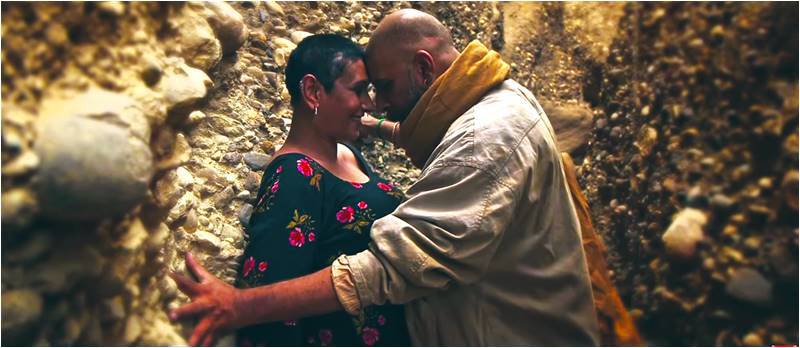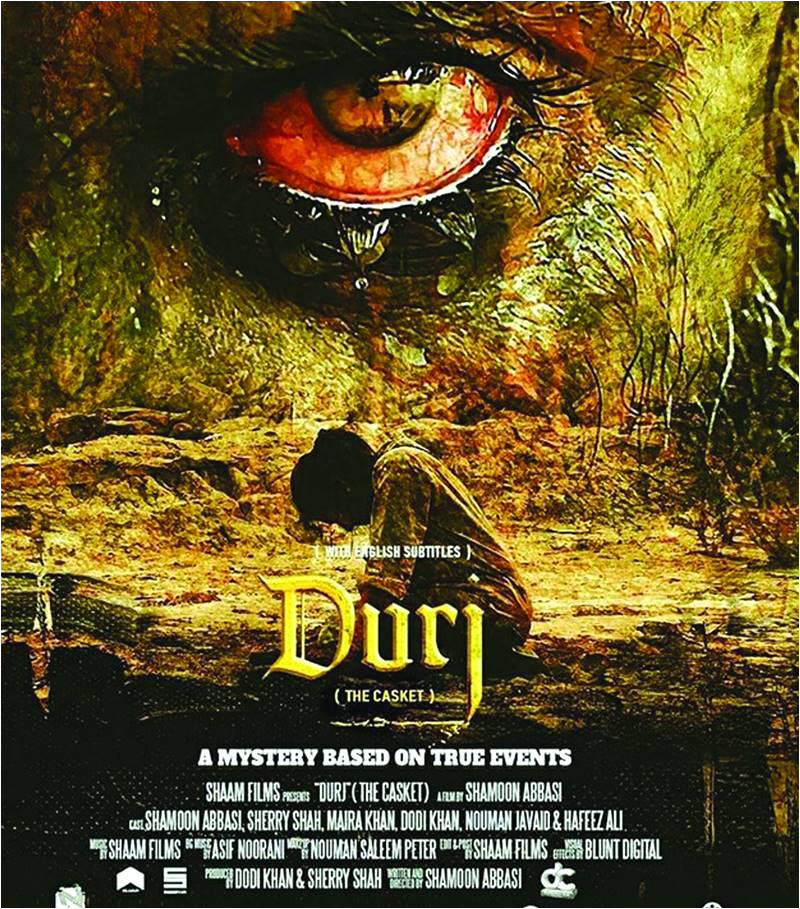
When Durj was first showcased in front of the Federal Censor Board, ahead of its originally scheduled release on the 11th of October, the film was banned. The film had been approved for release by the censor boards of Punjab and Sindh, and was also released worldwide on its original date.
After the ban was challenged by producer, director, writer and lead actor Shamoon Abbasi, Durj finally got the green light from the federal censor board and was released across the country last month. Still being screened nationwide, the film’s original ban tells us as much about our society as Durj looks to unveil on the screen.
But before we pose – or respond to – philosophical questions raised over the release of a film that asks philosophical questions of its own, it’s pivotal that we first remain in the tangible and the literal.
Let’s get the most important thing about the film out there, first and foremost: Durj belongs, without a question, to the absolute top of what Lollywood has offered this year.

Coming in a year which had Lal Kabootar as really the only top-drawer film in the country, it might not be that big a compliment. One could also say that Durj is among the best Pakistani films released in recent years, even if that might not be setting too high a benchmark either.
Inspired by true stories of cannibalism in the country, Durj explores questions ranging from hunger to existentialism to the idea of love. Given how all authorities in charge of overseeing the dissemination of any form of information in the country are perpetually on the edge, and their toes, one can understand – even if frown at – the reason the federal censor board found the subject of cannibalism unpalatable for the masses.
Even so, while it’s not true for all cases, quite often getting banned in Pakistan is the highest compliment one can receive. Definitely true for most forms of art in the country.
This is not to suggest at all that Durj is a flawless masterpiece. But in a film industry still infatuated with trying to out-Bollywood Bollywood, and clinging on to the fixed masala of heist comedies, that the film was attempted at all deserves to be commended.
Indeed, given the dearth of anything bordering on quality that Lollywood serves up, the audiences no longer have the patience or the gigantic hearts needed to laud mere attempts at producing professionally made films. In that regard, the final product on the screen is worth approbation as well.
Durj is a thriller, a love-story, a reenactment of certain events and indeed societal commentary, all rolled into one. And yet, unlike so many Lollywood films that make a meal of combining multiple genres and facets in often over-simplistic amalgamations, Durj keeps itself together till the very end.
The finale itself is open-ended, which is the only way such a probing storyline could have been aptly left. However, there are many other dimensions explored, wherein the film provides the closures to all the openings that it has created for itself.
Shamoon Abbasi’s acting, just like his direction and writing, is high quality. Sherry Shah could have been better, but does a good enough job to keep the film together on screen.
If you’re for entertainment in the customary sense, as upheld by the film industry in our neck of the wood, Durj is not the film for you. If the subject itself puts you off – even though there is allegory in play, and nothing graphic is even iterated, let alone depicted – you might not enjoy the film either.
But if you want to explore the theme of hunger – in its literal, philosophical and cinematic dimensions – Durj is commendable. When the filmmakers have the requisite hunger to produce quality art, no amount of the oft-made excuses can stop them.
After the ban was challenged by producer, director, writer and lead actor Shamoon Abbasi, Durj finally got the green light from the federal censor board and was released across the country last month. Still being screened nationwide, the film’s original ban tells us as much about our society as Durj looks to unveil on the screen.
But before we pose – or respond to – philosophical questions raised over the release of a film that asks philosophical questions of its own, it’s pivotal that we first remain in the tangible and the literal.
Let’s get the most important thing about the film out there, first and foremost: Durj belongs, without a question, to the absolute top of what Lollywood has offered this year.

Coming in a year which had Lal Kabootar as really the only top-drawer film in the country, it might not be that big a compliment. One could also say that Durj is among the best Pakistani films released in recent years, even if that might not be setting too high a benchmark either.
Inspired by true stories of cannibalism in the country, Durj explores questions ranging from hunger to existentialism to the idea of love. Given how all authorities in charge of overseeing the dissemination of any form of information in the country are perpetually on the edge, and their toes, one can understand – even if frown at – the reason the federal censor board found the subject of cannibalism unpalatable for the masses.
Even so, while it’s not true for all cases, quite often getting banned in Pakistan is the highest compliment one can receive. Definitely true for most forms of art in the country.
Unlike so many Lollywood films that make a meal of combining multiple genres and facets in often over-simplistic amalgamations, Durj keeps itself together till the very end
This is not to suggest at all that Durj is a flawless masterpiece. But in a film industry still infatuated with trying to out-Bollywood Bollywood, and clinging on to the fixed masala of heist comedies, that the film was attempted at all deserves to be commended.
Indeed, given the dearth of anything bordering on quality that Lollywood serves up, the audiences no longer have the patience or the gigantic hearts needed to laud mere attempts at producing professionally made films. In that regard, the final product on the screen is worth approbation as well.
Durj is a thriller, a love-story, a reenactment of certain events and indeed societal commentary, all rolled into one. And yet, unlike so many Lollywood films that make a meal of combining multiple genres and facets in often over-simplistic amalgamations, Durj keeps itself together till the very end.
The finale itself is open-ended, which is the only way such a probing storyline could have been aptly left. However, there are many other dimensions explored, wherein the film provides the closures to all the openings that it has created for itself.
Shamoon Abbasi’s acting, just like his direction and writing, is high quality. Sherry Shah could have been better, but does a good enough job to keep the film together on screen.
If you’re for entertainment in the customary sense, as upheld by the film industry in our neck of the wood, Durj is not the film for you. If the subject itself puts you off – even though there is allegory in play, and nothing graphic is even iterated, let alone depicted – you might not enjoy the film either.
But if you want to explore the theme of hunger – in its literal, philosophical and cinematic dimensions – Durj is commendable. When the filmmakers have the requisite hunger to produce quality art, no amount of the oft-made excuses can stop them.

